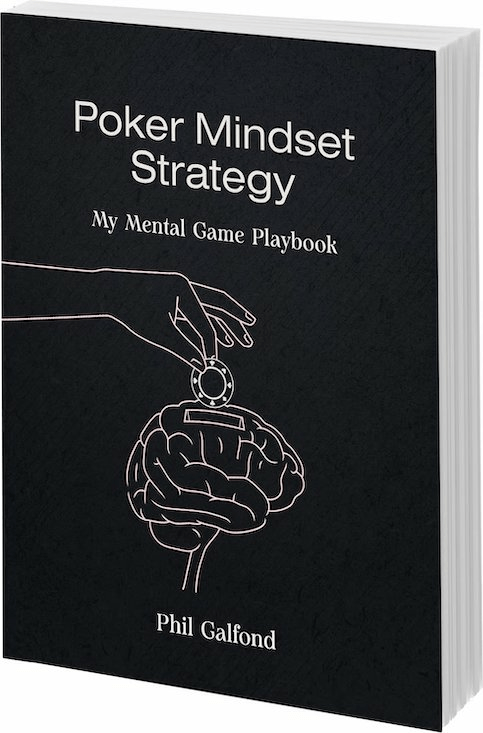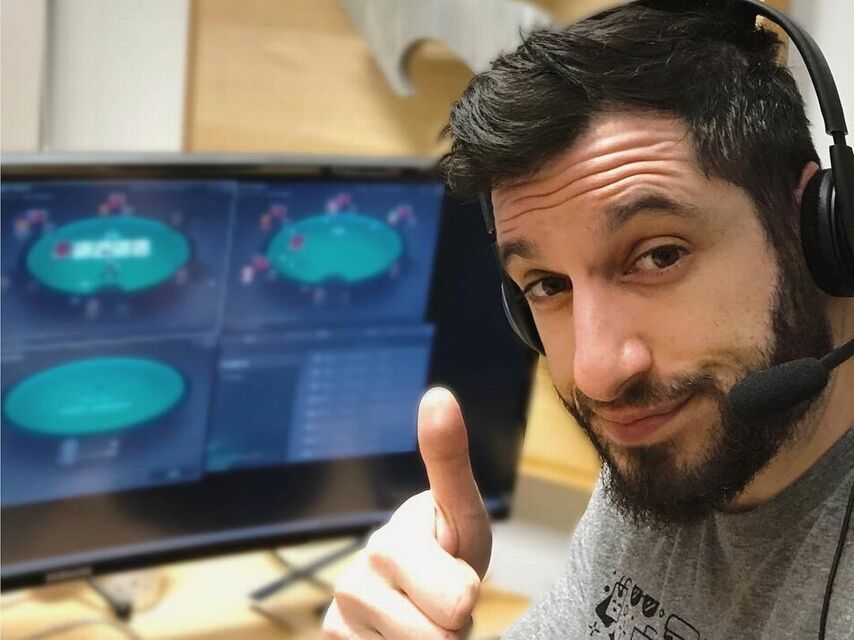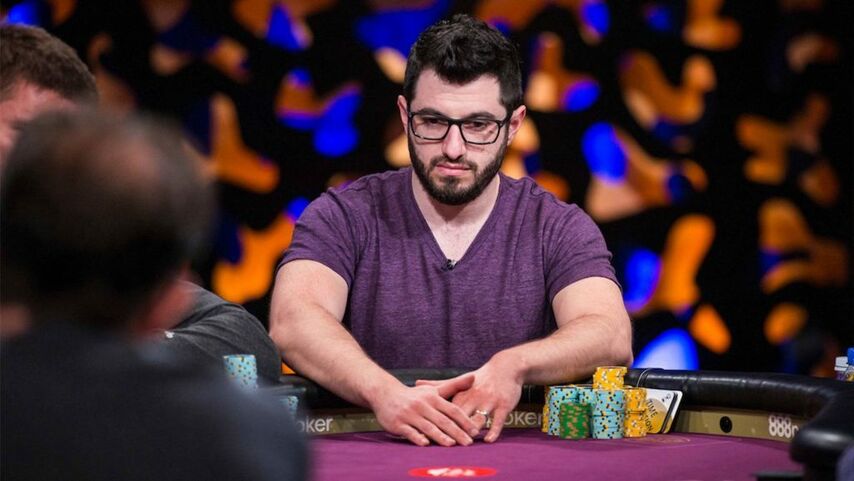Recently, Phil Galfond released a new e-book "Poker Thinking Strategy" to the public.

To draw attention to this event, Phil spent several hours answering questions from his Twitter readers.
Question from Charlie Carell:
– The strongest tilt in your career?
– Need to think. By tilt, you probably mean shouting/throwing things? This was rare for me. There was a period when I shared an apartment with another player, and over time we developed a habit of complaining to each other during sessions. I'm sure I said the F-word a couple of times at the time, but I tried not to raise my voice.
– And how true are the rumors that once you were on such animal tilt that you completely lost control of yourself and instead of Omaha played several hands of no-limit Texas hold'em?
– I admit it, I'm guilty.
Question from Jason Koon:
– It seems to me paradoxical is one moment connected with rationality in poker. On the one hand, it's very important to be realistic about variance and the things we can really control. On the other hand, I sincerely believe that in order to reach the top, you need unshakable faith in your own strength. Do you think it's good or bad when we set frankly unrealistic goals for ourselves? I have no doubt that I caused myself a lot of unnecessary pain because of this, but I am also sure that in the end, it went to the benefit of my career.
– There is no clear answer. For you, the desire to reach the top has become an additional motivation to work hard even in difficult periods. But what would happen to your career if, after all these efforts, your ceiling was the level you were at 10 years ago?
There is a big difference between believing in yourself and deceiving yourself. I firmly believe that not everyone can reach the top. All my top regs I know who like to repeat the phrase "I'm not as smart as the rest, so I had to work 10 times harder" are still in the top 5% of the smartest people in the world.
So the belief that you can reach the top can be both helpful and harmful. Depends if you are really capable of it 🙂
It is very important how a person behaves in a situation when he finds out that he cannot reach the level in which he was sure. Will he continue to play against stronger opponents until it's too late? Or will it become an additional motivation to work even harder? Maybe then he'll become "merely" a $25/$50 winner. Which is also very good.
In general, I am a supporter of ambitious goals, if a person does not lose his head in the pursuit of them. You and I have completely different backgrounds. I had a very easy life in my youth – all the prerequisites to succeed were in place. Everything is different with you, so you deserve success much more.
So to prove the theory "everyone can do it" you are much better suited. But you're still too smart to say that. You also mentioned the unnecessary pain poker has caused you. You may deal with pain differently than other people. I wouldn't be surprised if you enjoy and grow when you put pressure on yourself, even when that pressure feels like pain. I know that's how it is set up.
– What is the most important thing when moving from cash to tournaments?
It's more difficult than you might think. But if you start with micro-limits, then the field there is so weak that you can learn right during the game. First of all, I would pay attention to the game in short stacks – 10bb, 20bb, 30bb, 40bb. It is fundamentally different from the depth of 100bb+.
– Name some not so obvious adjustments for playing too loose in PLO (when every flop is watched by 4-5 people)?
– Throw away hands like 9876 two suits.
– How much money to take at the table in a private game, where there is no maximum application? I'm not going to hit and run, but all the members are richer than me and will cover me anyway.
– I would lean towards the minimum buy-in that you feel comfortable with. The worst thing is when money is pressing and you are scared to play.
– I have great difficulty dividing players into nits, TAGs, and so on. Just when I start to think I've figured it all out, they find a way to surprise me again. What do you recommend?
– It's complicated! I would suggest focusing solely on showdowns rather than trying to track your opponents' preflop frequencies (assuming you're playing live). And do not try to limit rivals with rigid frames. There are players who are very nitty preflop but don't fold anything postflop!
– Top five cash players in the world?
– As an online person, I will name BERRI and Linus and I will limit myself to this. They are obviously the top two. I'm sorry if I disappointed you, but to give a complete answer, you will have to think very long, and I will not have time to answer any other question.

– I play at an amateur level and I am ready to devote some time to work on the game. But I don't have the strength nor the bankroll to fully grind. I really love poker, especially live tournaments. What to focus on in order to progress most effectively?
– It depends a lot on your current level of knowledge. First of all, I would advise you to master preflop in stacks of 40bb and less.
– What is the meaning of life?
I don't have the slightest idea. But if you insist on an answer:
• Start meaningful relationships
• Enjoy life and benefit loved ones.
– Where do you get the strength and motivation to continue playing when all your thoughts are occupied with life's problems?
– I try not to play poker after a hard day and not to solve serious issues before poker. But I love poker so much that I often have the opposite problem – I often keep playing even when I know I shouldn't. One thing I know for sure is that in the midst of life's troubles, it is better not to play poker at all, if possible (that is, you will easily gain distance later, when you are in a normal state).
What poker books would you recommend for beginners?
I don't follow poker books at all. "Math of Poker" has always been considered excellent and is hardly outdated. But for beginners, it will be quite difficult.
How can I make my bluffs look stronger? It feels like I get called easily by everyone. I often bluff the river to steal the pot and that almost never works either. Maybe it's because I'm a weak player?
– Start recording successful and failed bluffs. Very often, the reality is very different from our perception. Are only your bluffs calling or are you value betting too? Maybe you're in a loose game, in which case just stop bluffing.
What influenced your poker development the most?
– Mentors.
– How to understand which part of the profits to invest in the bankroll and which to spend?
– A very difficult question, because there are too many external factors. But I'm sure it's better for most players to invest/save some of their profits and keep playing their limits rather than going higher at the first opportunity. Anyway, once you get past the micro stakes, where the killer rake is.
As for spending on yourself, then everyone decides for himself. Savings and bankroll should steadily increase, but sometimes you need to pamper yourself too.
– How would your life change if you entered High Stakes Poker like Dwan did?
I didn't even think about it. I would never play like him, so I would not be able to get any significant benefit from it. But if you fantasize about it, then I think I would have a lot more sponsorship offers. But the big question is how positively it would affect my career. And, most likely, it would ruin my game. But Tom is still benefiting from those sessions. So, in general, I would have become richer, but I would have played worse poker.
– The first "big" success that you remember?
– There were a lot of them. Probably when I was grinding a $100 SNG and made a $2k shot where I won $10k in a session.
– Do you think there is less threat from hinters and bots in PLO now?
– So far, yes, but in five years there will not be much difference between Omaha and Hold'em in this matter.
How often do you donk out of position in 3-bet pots on A-high boards?
– Never, although in theory, probably, sometimes it’s profitable to play like that.

– Who will win in an MMA fight between you and Dwan?
– 😂 no comments.
– I play low and medium stakes online. What should I pay attention to in order to better detect exploits?
– Turn > river > preflop > flop. That is, I would start with turn statistics – delayed c-bets and folds to probe-bets ( ed. – bet on the turn or river out of position when the preflop aggressor did not c-bet on the flop ), probe-bets and folds to delayed c-bets. Then I would study the river. How often your opponents fold on the river and how effective your calls are will give you an idea of the frequency of their bluffs.
– I lose 95% of the pots in which I was a favorite. This has been going on for a long time. Maybe it's time to admit that I'm just bad at playing and quit poker?
– If you really lose 95% of pots, it is unlikely to be related to your skill. 99% of the people who ask this question just don't understand the essence of poker, and many of them actually play for a loss. There remains 1%, which does not add up very, very much. But with that kind of luck, it's probably easier to put yourself in the top 99%.













